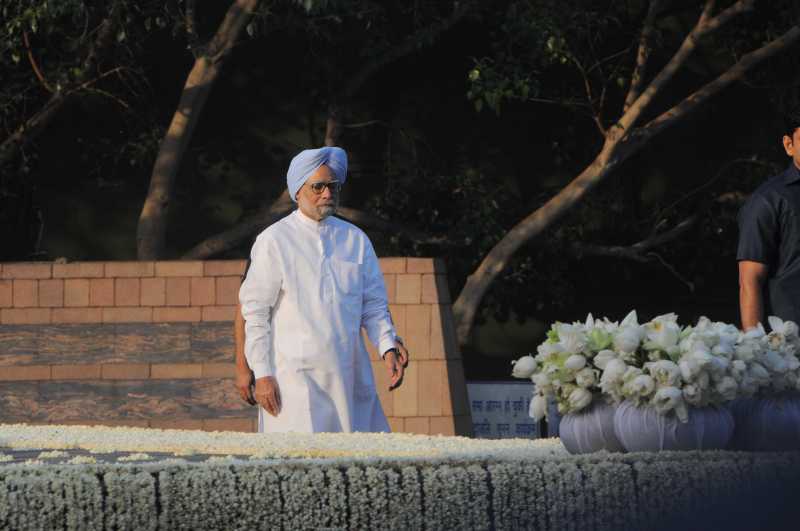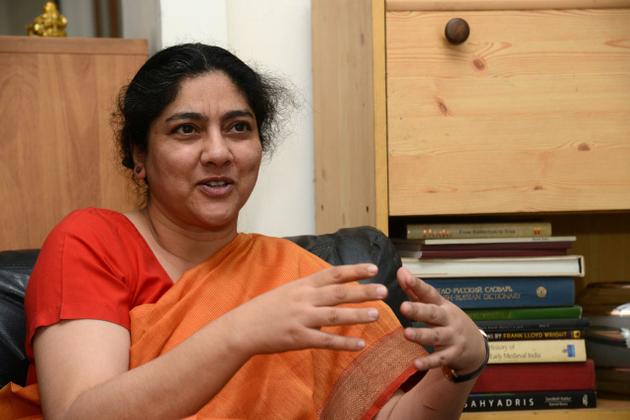Manmohan Singh sought a soft job, but Indira Gandhi did not agree’

Manmohan Singh, who steered the UPA government for 10 years as prime minister, was looking for a ‘soft’ job in his 50s but was told by then prime minister Indira Gandhi to become the governor of the Reserve Bank of India as he was “too young to do a soft job”, a new book by his daughter has revealed.
Authored by the second of his three daughters, Daman Singh, the book, titled ‘Strictly Personal: Manmohan and Gursharan’, says that Indira Gandhi wanted Manmohan Singh as a member of the Planning Commission to prepare the Sixth Five-Year Plan (1980-85).
“But when he expressed his difficulty in retiring 10 years early (from the civil service), she was magnanimous enough to appreciate this. She also took the trouble to find a way out. The post of member-secretary was created, for which he did not have to resign,” says the book, published by HarperCollins India .

“Two and a half years later, she wished to appoint him governor of the Reserve Bank of India. When he (Singh) went to see her, he mentioned that he had been in a tough job for many years and that he was now looking for a ‘soft’ option.”
“She looked up and, with a radiant smile… said you are only 50. You are too young to do a soft job,” said the book.
Daman Singh, 48, a writer who is a graduate of St. Stephen’s College, Delhi and Institute of Rural Management, Anand, Gujarat, has based the book on her conversations with her parents and her research. It also contains some interesting nuggets about Manmohan Singh’s past.
In April 1948, he joined a two-year F.Sc. course that would lead to further studies in medicine at Amritsar’s Khalsa College as his father wanted him to become a doctor. He dropped out after just a couple of months as he had lost interest in becoming a doctor. In fact, he had also lost interest in studying science, the book says.
“I went and joined my father in his shop. I didn’t like that either, because I was not treated as an equal. I was treated as an inferior person who ran errands… Then I thought I must go back to college. And I entered Hindu College in September 1948,” says the book quoting the former prime minister.
After getting his master’s degree in economics, Manmohan Singh went to Cambridge to pursue his Economics Tripos with the help of a scholarship from Punjab University.
As per a signed bond, when he returned in 1957, Manmohan Singh taught in the university for two years.
He went to Oxford in 1960 to pursue doctorate in philosophy and upon its completion joined the United Nations in 1966, staying till 1969.
It was during this time that Manmohan Singh thought of serving the nation and was laterally inducted into the civil services in 1971.
Talking about her father’s workaholic nature, Daman Singh writes that he would often bring “big cloth bundles” of papers home and work was his first priority.
“Every day, his office accompanied him home in big cloth bundles that we helped lug out of the car. He worked in bed where he sat cross-legged with a pillow on his lap, a stack of files beside him. As he hunched over his papers, inscribing neat squiggles, he would tug his beard and mutter to himself.”
“When he was not working, he was usually preoccupied with a book or else with his thoughts,” the author says.
And at times, he would “sit with an index finger perched on the side of his nose… completely helpless about the house and could neither boil an egg, nor switch on the television.”
Manmohan Singh read avidly during his college days and his repertoire covered theological critiques, social commentaries and political ideologies, says the book.
About his days at Cambridge, Daman Singh writes that money was the only real problem that bothered her father. Though he would never borrow money his entire life, this was when he came closest to doing so.
“His tuition and living expenses came to about 600 pounds a year. The Punjab University scholarship gave him about 160 pounds. For the rest he had to depend on his father.
“He was careful to live very stingily. Subsidized meals in the dining hall were relatively cheap at two shillings six pence. He never ate out, and seldom indulged in beer or wine. Yet he would be in crisis if money from home fell short or did not arrive on time…
“When this happened he skipped meals or got by on a six pence bar of Cadbury’s chocolate,” says the book.
A desperate Manmohan Singh finally wrote to a friend in India asking for a loan of 25 pounds.
“I find that over the two years, my budget falls short of 25 pounds. I therefore hope you will send me, say, 12 pounds this year and 13 pounds next year,” Manmohan Singh wrote in the letter.
“Two months later a money order for three pounds arrived. This must have been all that his friend could immediately spare, and Manmohan was immensely grateful,” says the book.